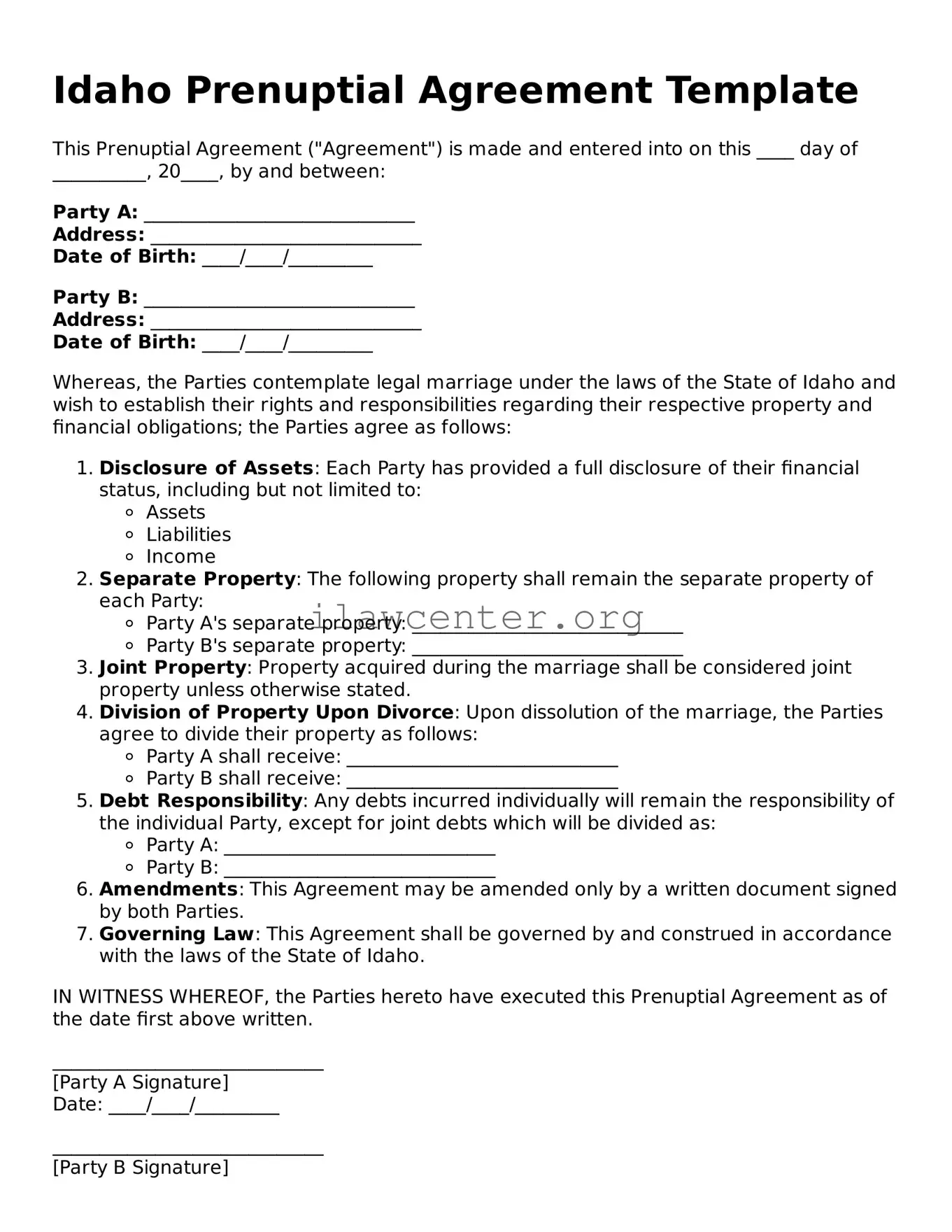Instructions on Utilizing Idaho Prenuptial Agreement
Completing the Idaho Prenuptial Agreement form requires careful attention to detail. Each section of the form needs to be filled out accurately to ensure that all necessary information is included. This can help facilitate understanding between parties involved. Below are the steps you should follow to fill out the form properly.
- Start with the title of the agreement. Write "Prenuptial Agreement" at the top of the form.
- Provide the full names of both partners. Make sure to include any middle names for clarity.
- List the date of the agreement. Write down the day, month, and year when the agreement is being signed.
- State the specific terms you want to include in the agreement. This may cover topics such as property ownership, debts, and financial responsibilities.
- Include a declaration of assets. Each partner should list their individual assets and liabilities, ensuring that all information is as detailed as possible.
- Specify the jurisdiction. Indicate that the agreement is governed by the laws of Idaho.
- Leave space for signatures. Each partner should sign and date the form where indicated, acknowledging that they agree to the terms.
- Consider having witnesses or notaries sign, if required. This depends on the level of formality you wish to apply to the agreement.
